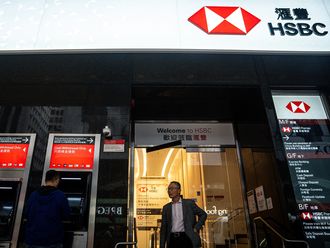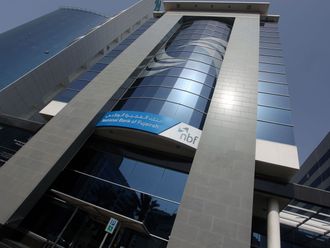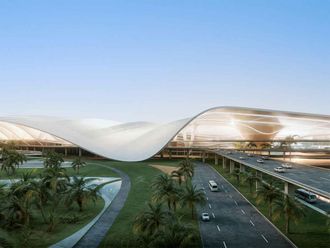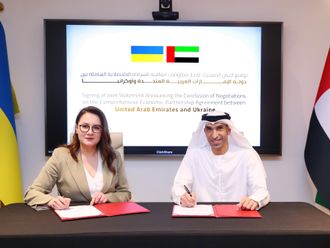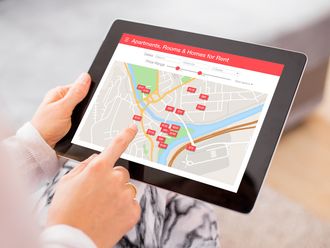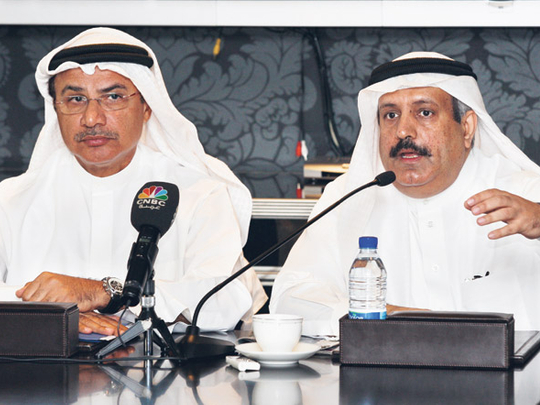
Dubai: The Islamic Development Bank will soon launch a roadshow to attract investment for Istikhlaf, an Islamic bank, a top banking official said here yesterday.
Adnan Ahmad Yousuf, Chairman of the Union of Arab Banks and CEO of Al Baraka Banking Group told Gulf News: "Istikhlaf will be launched with $2 billion [Dh7.34 billion] paid-up capital and $10 billion authorised capital and is being sponsored by the IDB."
Istikhlaf Bank is a project of the Islamic Chamber of Commerce and Industry (ICCI) announced by Shaikh Saleh Kamel, president of the ICCI.
Yousuf added: "IDB finished the feasibility study on the bank and it is in the final stage of launching prospectus for investors."
He said a roadshow is planned to attract investors from both public and private sectors.
Main target
On the sidelines of a major banking conference organised by the Emirates Banks Association, Yousuf said, there are two main concerns in developing such a huge financial project. One is to provide the full range of Islamic banking services and the other to avoid competition with other local Islamic banks. "The main target that Istikhlaf will seek is to invest and participate in mega-projects and to share it later with other Islamic banks."
Arab central banks and governments should form emergency plans to protect their economies from the international financial crisis, he said. "Despite achievements, there are challenges ahead of Arab banks in 2010 that require serious and continuous focus," he said.
Yousuf said that to achieve a better Arab economy with financial stability and growth, the Arab Banks need to improve products and services.
"Since a good number of financial institutions and companies are rescheduling their financial commitments, searching for long-term investments such as pension funds and sovereign funds which are among the most important vehicles that financial institutions should take into consideration."
He added that despite signs of recovery, the global financial situation is still weak, particularly in many developed countries and some emerging markets.
Growth
"Despite the effects of the global financial crisis on the Arab banks, they witnessed in 2009 growth in assets by 3.57 per cent, in deposits by 1.7 per cent, loans up to 6 per cent, and in funds by 19.50 per cent. These figures indicate that most of the Arab banks increased their capital to face the effect of the crisis."
However, Yousuf anticipated that in 2010 the Arab banks' bad debts would be around 8 per cent of total loans. "A 5 per cent bad debt is alarming, but with such economic scale the expected figure is reasonable and would be manageable if it is still below 10 per cent, otherwise this issue should be tackled seriously."
He said Arab banks should adapt to new regulatory requirements suggested by the Basel committee." Moreover he recommended that Arab banks should enhance their capital base and update professional practices in the banking profession.


